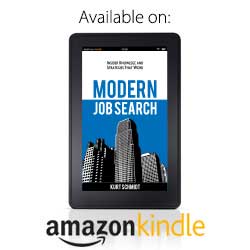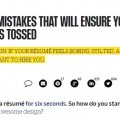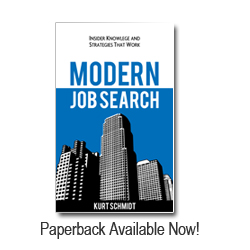
Free, Free, Free! But First – This…
By Kurt Schmidt In Blog On April 6, 2015
(The title of this post is explained at the bottom. I know you’re going to read the whole thing anyways because that’s the type of good person that you are and for that I thank you!)
I got into this topic a couple of weeks ago, posted my own thoughts on the subject and even commented on a few posts written by others, and still I’m not sure I understand the issue. Why are so many people so concerned about revealing their salary or compensation information to recruiters when asked?
As an issue, at least from my vantage point, this one seems way over blown, like picking a fight where one need not be. As a recruiter, I do speak with my candidates about compensation – both their current compensation (not salary history) and their desired compensation. Maybe the fact that I work with supply chain people who are accustomed to thinking about numbers helps but it is rare that this conversation is confrontational on any level. Typically instead, it is a collaborative conversation. How so?
Yes, I work for companies, they pay the bills. However in order to make a placement and to be able to send a bill, a candidate has to not only receive but also accept an offer. My job is pointless if the best I can do is get offers that candidates won’t accept. I’ve been doing this long enough to know that I can’t make a candidate accept an offer if it isn’t what they want. So it is very important to have a realistic conversation about both current compensation and target compensation relatively early in the process.
Why isn’t target compensation good enough? Because it may not be realistic nor is it necessarily empowering for either the candidate or the recruiter – at least not in the early part of the conversation. Here’s an example: Last year I got three job assignments from a great company. Not only were they growing but they were also recently acquired by a much larger company that was eagerly promoting people from the new division up into corporate – creating all sorts of jobs at the division level. Because they were also making changes in the organization these jobs were new for them and they were seeking different skillsets than they had previously. Early in the recruiting process, I identified several very good candidates who were all earning more than the client company initially wanted to pay. Because each of the candidates shared their current compensation levels with me I felt confident enough to take that data to the company and help them re-align the positions to fit market conditions based on real candidate information. (I could never feel that confident with only target information because it doesn’t reflect real market conditions between similar candidates’ actual compensation.) This was not a survey nor data gathering, the information I provided was from just a few candidates – all of whom the company ultimately hired.
The candidates and I worked together using both their real current compensation and, once they had interviewed for the positions and understood the jobs, their target compensation. How did this work? I don’t know how other recruiters broach the subject but I always fully explain why current compensation is important when I talk with prospective candidates (and I’m happy to share my own is asked). It’s not the first thing we talk about but it is among the things we discuss as we try to figure out if a particular position has potential. Recruiters may or may not always have a useful salary range from their clients to provide in response (see above example) but most of us understand the principal that candidates will rarely make a move for less than they are currently earning (companies understand this too, though sometimes grudgingly). There are always exceptions of course, ask anyone based in the Arctic who is interviewing for jobs in Florida. However the point is that if, during an early conversation with a candidate, I discover that they are earning more than my client has said they could pay we have two options – either walk away and save everyone some time or confront the company and see what they want to do about it. The right option depends on the specific situation but the approach is collaborative, not confrontational. I’ve said it before, for placements to work, everyone has to be happy. I can’t force candidates to take offers they don’t want and I don’t want to. Good situations don’t require coercion. My job is to create good situations. (Like a lot of recruiters, I also have to guarantee my work – so again, quality, long term viability, and good matches on all levels are the only things that really work.)
Right, I still haven’t told you why revealing your current salary to a recruiter is not a big deal and I implied that I would in the beginning, so here goes: Recruiters are not decision makers, they are gate keepers. Your goal as a job seeker is to get past the gate keeper, to get to the next step, and continue until you receive an offer. Period. Most of the time, answering the compensation question is the path of least resistance that will take you to that next step – which is likely being submitted to the client company, hopefully to a hiring manager but also frequently to their HR staff as well. Often, not answering the compensation question puts the recruiter in a weaker position with the client company and makes it harder for them to do their job. Why should you care? Everyone hates recruiters right? As a candidate, weakening the recruiter who is going to represent you to the company is not the smartest move. In fact it often means getting stopped at the gate, either by the recruiter themselves or by the client company who simply moves on.
Recruiting is an extremely competitive business in which clients are not particularly loyal. For every recruiter that submits a candidate with incomplete information there are many others who have filled in the blanks. Okay so a lot of you will say that we should all stand up to companies and tell them that current compensation is not important only target compensation matters, but this post isn’t about starting a revolution, it’s about making the process work for you.
How do you make it work for you? First, understand that nobody can make you accept an offer that you don’t like regardless of your current compensation level (which is why you should not get hung up on it). However, any offer is better than no offer at all. How many times have you successfully proposed a counter-offer when no original offer was given? Right, exactly.
The key to making the process work for you is timing, figuring out when to pick your battles and when you as a candidate have true influence over the results. Hint: This is not during the first call with a recruiter who literally has the absolute least amount of leverage of everyone involved. The time to make a case for the compensation package you want and believe you deserve is after you’ve convinced the company that you are the best candidate they could hope to hire when they most want to hire. This is after all of the interviews. This is after you’ve learned all about the job, the team, and the company; and more importantly after they’ve learned about you. Remember if you focus on price before product you will fail more than you will succeed. The best approach is to do everything possible to demonstrate how you can help the company meet its challenges and solve its problems before making them think about the cost. Once they fall in love it is real hard for them to walk away. In contrast, it’s pretty easy to walk away from a number if it’s just a number without any substance – which is exactly what your target compensation is before you get a chance to back it up.
This is where everyone says that since the company already has current salary information, they will just work from that to make an offer, which might result in a lower initial offer than expected. What’s the key word here? Initial, as in initial offer or first offer. Again, the goal of any interview process is to put yourself in a position to make a decision. This only happens if you receive an offer. Once you receive an offer there is a transfer of power from the company, who previously appeared to hold all the cards, to you, the candidate who now has a commitment from the company to hire them. What does this transfer of power mean? It means you can negotiate, walk away, accept the offer as it is, roll it up and smoke it or do whatever you want with it. If you never get to the offer stage, you don’t get to do any of those things.
Companies like to hire their first choice candidates and while they may have backup candidates, there are reasons why backups are not primaries. As well, open jobs cost money and an offer signals the end of the bleeding in many cases. Companies don’t like turn-downs because more often than not it means starting over again which costs time and, usually more money than just improving the initial offer.
Sure if you reveal your current compensation information to a recruiter you might get an initial offer that doesn’t, in your opinion, reflect your market value because it is based on what you’re earning now. However you will have also gotten a chance to interview and make your case to real decision makers. And, oh yeah, you’ll get the offer itself. Most people don’t get a lot of offers or even a lot of interviews. I may be wrong but, personally I value offers a lot more than a fleeting feeling of victory one might get by withholding a useless tidbit of information from a recruiter.
Lastly, why do I feel like I can write about this subject? What are my qualifications? There are a lot of career advice writers on LinkedIn and I’m not one of them. I’m a recruiter. I speak with candidates and hiring managers every single day. I have setup more interviews than I can count and I’ve negotiated a lot of offers. I’ve survived, and at times thrived, in what many would say is a very competitive business. You are welcome to disagree with my opinions but they are based on a number of experiences that most job seekers (and probably more than a few career advice writers) will never have time to accumulate.
I know that my posts won’t generate the thousands of hits that other writers get and that’s okay, I’m a recruiter, I’m only writing this because I want to help. It’s the same reason I wrote and published a job search book.
And now that you’ve slogged through this very long post, it’s time to explain the title. Starting Thursday, April 9th and continuing until sometime on Monday, April 13th, my book, Modern Job Search will be free to download for reading on Kindle Readers or using the Kindle App on any device (Android, IOS, PC, etc.). Click the link above or this one on Thursday and anytime between then and Monday and you can have my book for free. There are no subscriptions, no surprises, and no additional costs. Instead, what you will get is everything you need to understand the true mechanics of a successful job search process presented in a narrative format and based on real characters and a lot of years working in the trenches of executive search. I sincerely hope it helps.
Kurt Schmidt is the author of “Modern Job Search” and the President and Owner of Capto Systems, an executive search firm focused on supply chain and strategic sourcing jobs in manufacturing and energy. He’s also an aspiring photographer and traveler. If you’re really looking for a job, you need this book!








